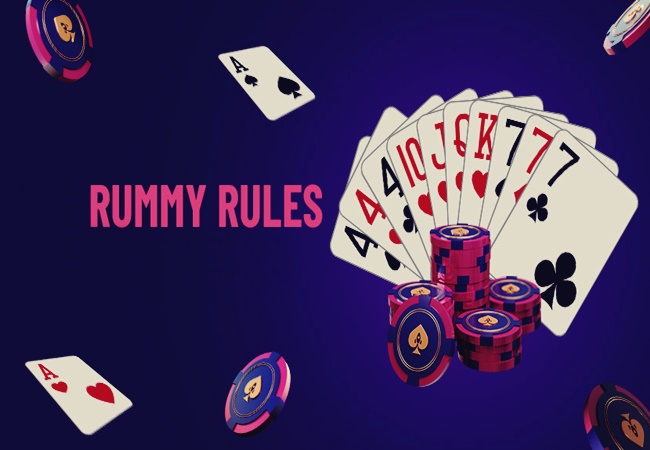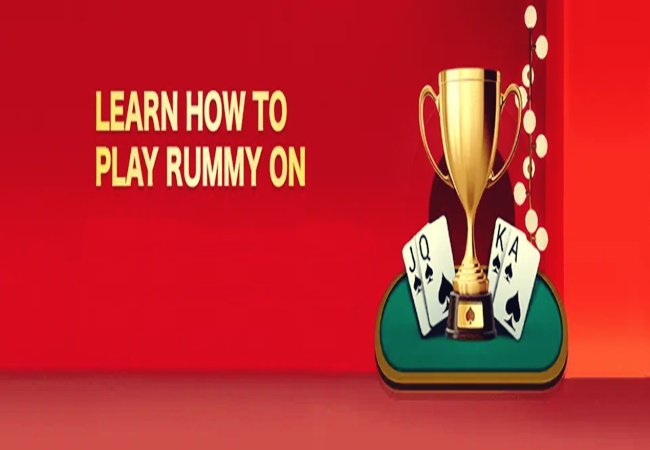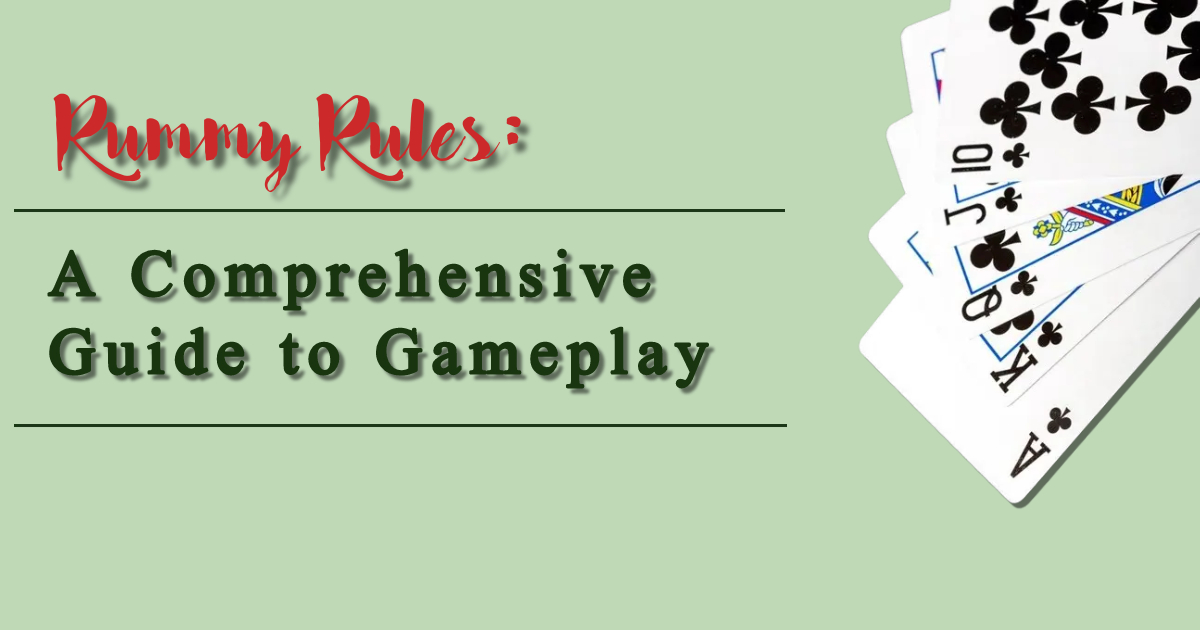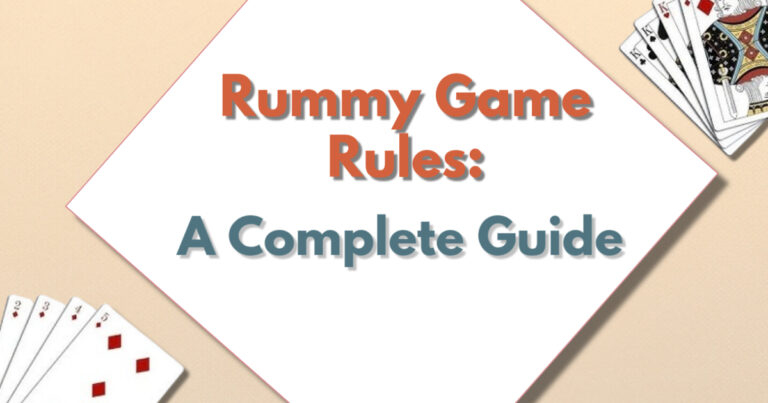Rummy Rules: A Comprehensive Guide to Gameplay
Rummy rules, a timeless card game enjoyed by people of all ages around the world, has been a staple in social gatherings and family game nights for decades. Its rich history and straightforward gameplay make the rummy game a favorite among card enthusiasts. In this comprehensive guide, we will delve into the intricate rules and strategies of Rummy game, providing you with everything you need to know to become a master of the game.

Introduction to Rummy
Brief History of Rummy
Rummy’s origins can be traced back to the early 20th century, with its roots believed to lie in a Chinese card game called Mahjong. Over the years, Rummy has evolved into various forms and gained widespread popularity across different cultures and regions, following rummy rules, including among Teen Patti Stars.
Popularity of the Game
From casual gatherings to competitive tournaments, Rummy has stood the test of time as a beloved pastime for millions of players worldwide. Its simple yet strategic gameplay appeals to both casual gamers and seasoned professionals alike.
Basics of Rummy
Objective of the Game
The primary objective of Rummy is to form sets or sequences of cards in your hand and discard those cards to declare a winning hand before your opponents. The game typically involves two or more players, with the number of decks varying depending on the variation being played.
Setup and Dealing of Cards
To begin a game of Rummy, rummy rules dictate that a standard deck of 52 cards is shuffled, and each player is dealt a specific number of cards, typically 10 or 13, depending on the variation being played. The remaining cards are placed face-down on the table to form the draw pile, with one card flipped face-up to start the discard pile.
Rummy Rules: Gameplay
Understanding Sets and Sequences
In Rummy, players aim to form either sets or sequences of cards in their hand. A set consists of three or four cards of the same rank but different suits, while a sequence comprises three or more consecutive cards of the same suit.
Drawing and Discarding Cards
On their turn, players must follow rummy rules by drawing a card from either the draw pile or the discard pile and then discard one card from their hand onto the discard pile. The game continues in this manner, with players strategically drawing and discarding cards to improve their hand.
Declaring a Winning Hand
Once a player has formed the required sets or sequences in their hand, they can declare a winning hand by following rummy rules, placing their cards on the table and announcing their intention to “go out.” The player must then lay down their hand for verification, and if it meets the game’s requirements, they win the round.

Variations of Rummy
Gin Rummy
Gin Rummy is a popular variation of the game that originated in the United States in the early 20th century. In Gin Rummy, players aim to form sets and runs of cards in their hand, with the game ending when one player “knocks” or “goes gin.”
Indian Rummy
Indian Rummy, also known as Paplu or 13 Card Rummy, is a variant commonly played in India, following rummy rules. It incorporates additional complexities, such as the use of jokers and the requirement to form at least two sequences, one of which must be a pure sequence.
Rummikub
Rummikub is a tile-based variation of Rummy that is played with numbered tiles instead of playing cards. Players aim to be the first to empty their rack by forming sets and runs of tiles on the table, employing strategies similar to those used in traditional Rummy.
Strategies for Success
Card Arrangement Techniques
Organizing your cards effectively is crucial in Rummy, as per rummy rules, allowing you to quickly identify potential sets and sequences in your hand. Sorting your cards by suit or rank can help streamline your decision-making process during gameplay.
Observing Opponents’ Moves
Pay close attention to the cards your opponents draw and discard, as this can provide valuable insights into their hand and potential strategies. By observing their moves, you can anticipate their next moves and adjust your own strategy accordingly.
Common Mistakes to Avoid
Holding onto High-Value Cards for Too Long
While high-value cards may seem valuable, holding onto them for too long can hinder your ability to form sets and sequences in your hand. Be willing to discard high-value cards if they do not contribute to your overall strategy.
Ignoring Opponent’s Discards
Disregarding your opponents’ discards can be a costly mistake in Rummy, as per rummy rules, as it may prevent you from completing sets or sequences that are crucial to winning the game. Keep track of the cards your opponents discard and consider how they may impact your own gameplay.
Etiquette in Rummy
Respect for Fellow Players
Maintaining a respectful and courteous demeanor towards your fellow players is essential in Rummy, in accordance with rummy rules. Avoid making derogatory remarks or criticizing other players’ gameplay, as this can create tension and detract from the enjoyment of the game.
Fair Play and Sportsmanship
Adhering to the rules of the game and displaying good sportsmanship are fundamental aspects of Rummy etiquette. Play fairly, refrain from cheating or manipulating the game, and accept both wins and losses graciously.
Online Rummy Platforms
Benefits of Playing Online
Playing Rummy online offers numerous benefits, including convenience, accessibility, and the opportunity to compete against players from around the world, adhering to rummy rules. Online platforms also often provide tutorials, practice games, and competitive tournaments for players of all skill levels.
Popular Platforms for Rummy
Several online platforms cater to Rummy enthusiasts, offering a diverse range of game variations, competitive tournaments, and community features. Some popular platforms include RummyCircle, Junglee Rummy, and Ace2Three.
Conclusion
Rummy is more than just a card game; it’s a timeless tradition that brings people together and fosters camaraderie and friendly competition, following rummy rules. Whether you’re a novice player or a seasoned veteran, mastering the rules and strategies of Rummy can provide hours of entertainment and intellectual stimulation.

FAQs
Can I play Rummy with a standard deck of cards?
Yes, Rummy can be played with a standard deck of 52 cards, although variations such as Gin Rummy may require additional decks or jokers.
How many players are typically involved in a game of Rummy?
Rummy can be played with two or more players, with larger groups often dividing into teams to compete against each other.
What is the difference between sets and sequences in Rummy?
Sets consist of three or four cards of the same rank but different suits, while sequences comprise three or more consecutive cards of the same suit.
Are there any specific strategies for winning at Rummy?
Effective card arrangement, observation of opponents’ moves, and timely discarding of cards are key strategies for success in Rummy.
Can I play Rummy online with friends and family?
Yes, many online Rummy platforms allow you to create private tables and invite friends and family to join you for a game.






